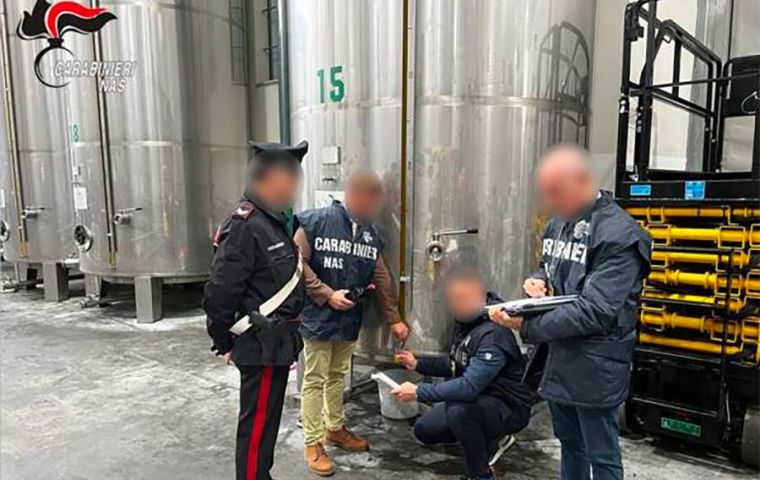MercoPress. South Atlantic News Agency
Europol, Spain and Italy combating counterfeiting of virgin olive oil
 Europol said that faking extra virgin olive oil is a common practice, which is why the fight against it is a law enforcement priority, especially in production countries
Europol said that faking extra virgin olive oil is a common practice, which is why the fight against it is a law enforcement priority, especially in production countries The traditional olive harvests of Spain and to some extent in some areas of Italy has been far from satisfactory, which means among other consequences that the price of virgin olive oil, so demanding for Mediterranean gastronomy, has soared, and so have attempts to smuggle the produce from northern Africa as well as different methods to commercialize adulterated oil.
No wonder then that Europol's coordinated effort to combat food fraud and counterfeiting supported an investigation into the olive oil situation. The EMPACT funded operation was initiated by the Spanish Civil Guard (Guardia Civil), who joined forces with the Italian Carabinieri.
This has led to eleven arrests and the seizure of over 260 000 liters of olive oil unfit for consumption.
Europol explains that faking extra virgin olive oil is a common practice, which is why the fight against it is a law enforcement priority - especially in production countries. In this food fraud operation, investigators uncovered that the criminals used so-called ‘lampante oil’, the lower-quality variant of olive oil, to dilute their product.
Lampante olive oil is characterized by elevated acidity levels, an undesirable flavor, and a distinctly unpleasant odor, which make it unsuitable for consumption. The term ‘lampante’ itself originates from its historical use as a fuel in oil lamps.
Mixing consumer-grade olive oil with lower grade alternatives allowed the criminals to offer competitive prices while entering legal supply chains. This illegal practice can not only cause a public health risk, but also undermine consumer trust and thus have further economic repercussions.
In a coordinated action in November 2023, Spanish and Italian law enforcement officials conducted searches in various locations. Around Ciudad Real, Spain, six suspects were apprehended and 12 barrels containing 260 000 liters of adulterated oil were seized. The officers also seized four vehicles and EUR 91 000 in cash, as well as digital and physical evidence such as billing documents and e-mails.
In the Italian provinces of Sicily and Tuscany, investigators inspected three oil factories suspected to be involved in the illegal practices. Several fiscal documents and clients lists were acquired, oil samples gathered, and one company sanctioned for irregular labelling of its products. Europol deployed a specialist with a mobile office to Spain, allowing for quick cross-matches against Europol databases.




Top Comments
Disclaimer & comment rulesCommenting for this story is now closed.
If you have a Facebook account, become a fan and comment on our Facebook Page!